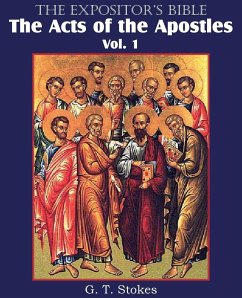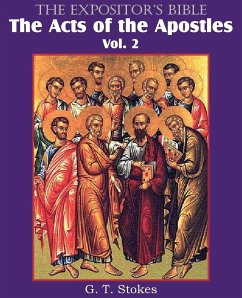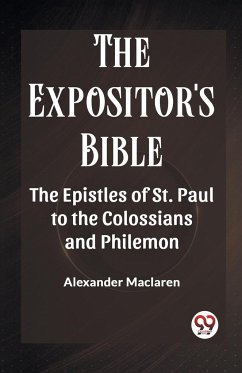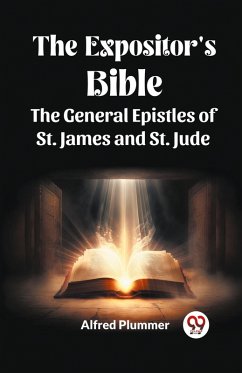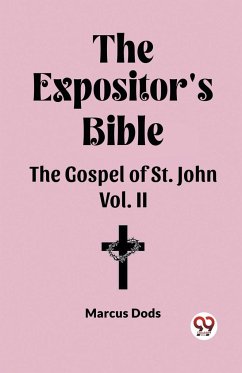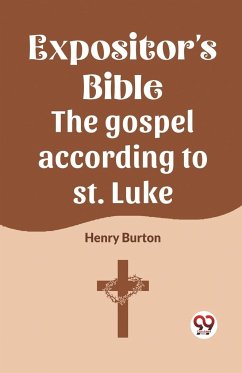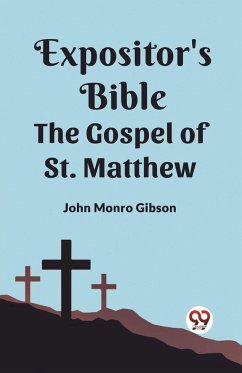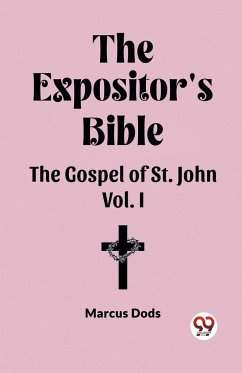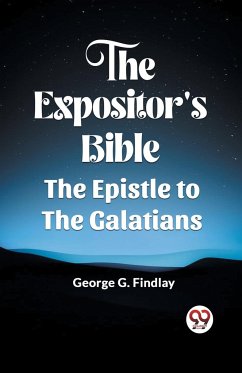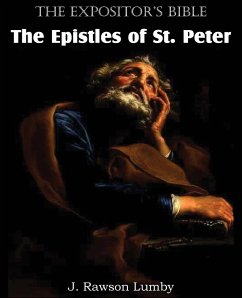
The Expositor's Bible The Epistles of St. Peter
Versandkostenfrei!
Versandfertig in 1-2 Wochen
19,99 €
inkl. MwSt.
Weitere Ausgaben:

PAYBACK Punkte
10 °P sammeln!
This volume contains an exposition of the Acts of the Apostles down to, but not including, the conversion of St. Paul and the baptism of Cornelius. There is a natural division at that point. Prior to these events, the inspired narrative is engaged with what the late Bishop Lightfoot of Durham called great "representative facts," prophetical or typical of the future developments of the Church, whether among Jews or Gentiles; while the subsequent course of the history deals almost entirely with missionary work among the heathen and the labours of St. Paul. I have written this book from my own st...
This volume contains an exposition of the Acts of the Apostles down to, but not including, the conversion of St. Paul and the baptism of Cornelius. There is a natural division at that point. Prior to these events, the inspired narrative is engaged with what the late Bishop Lightfoot of Durham called great "representative facts," prophetical or typical of the future developments of the Church, whether among Jews or Gentiles; while the subsequent course of the history deals almost entirely with missionary work among the heathen and the labours of St. Paul. I have written this book from my own standpoint as a decided Churchman, but I hope that I have said nothing which can really hurt the feelings of anyone who thinks otherwise, or which may tend to widen those differences between Christians which are such a terrible hindrance to the cause of true religion and its progress in the world. GEORGE T. STOKES






